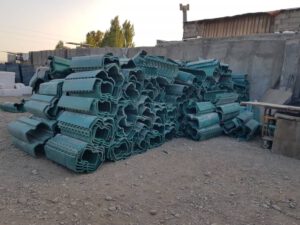

تولید و فروش قالب بتن فلزی مدولار ، جک سقفی صلیبی ، داربست مثلثی و چکش ، لوله داربست ، تخته قالب بندی ، پلی وود روسی اندونزی، چینی ، پین و گوه ، سولجر ، گیره قالب بندی ، بلت تمام رزوه و عصایی ، قیچی میلگرد ، خم کن ، خاموت زن ، ارماتور بند ، اسپیسر ، بست داربست ، رابط ، گیره خروسکی ، مهره ، واشر کاس و دو لول ، میان بلت آب بند چدنی و فنری و …
کلیه حقوق وب سایت Copyright © 1401 برای مجتمع البرز قالب محفوظ می باشد.